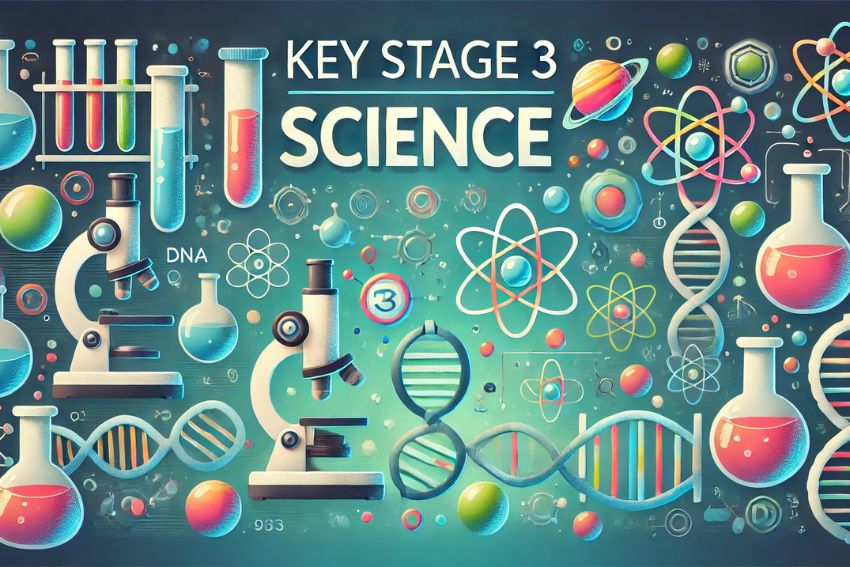Your Ultimate GCSE Engineering Guide: Free resources and Expert Tips
What is GCSE Engineering? GCSE Engineering is a course designed to introduce students to the principles of engineering and its real-world applications. The course covers essential topics like design, materials, and manufacturing processes, giving students a clear understanding of how engineering impacts our daily lives. It also includes hands-on projects that encourage creativity and innovation, making the subject both practical and engaging.
For students aspiring to become engineers, this course provides a solid foundation. You may wonder, what GCSEs do you need to be an engineer? Typically, Maths, Science, and Design Technology pair well with GCSE Engineering to prepare you for further studies and careers in this field.
Why Choose GCSE Engineering? Choosing GCSE Engineering opens the door to exciting opportunities. This course helps you build problem-solving skills by tackling engineering challenges, which are crucial for higher education and future careers. It also develops your analytical thinking, preparing you for advanced subjects like A-level Design Engineering.
To excel in this subject, engineering GCSE revision plays an important role. Using resources like engineering GCSE past papers can help you practise exam-style questions and build confidence. Whether you’re aiming for a career in design, manufacturing, or technology, GCSE Engineering sets you on the right path.
This course is not just about learning; it’s about applying knowledge in creative and practical ways. With the skills you gain, you’ll be ready to explore the exciting world of engineering!

Core Components of the GCSE Engineering Curriculum
The GCSE Engineering Curriculum includes a strong focus on design engineering, which encourages students to think creatively and solve real-world problems. Through this aspect of the course, students learn how to design, develop, and evaluate products. They gain an understanding of key concepts like functionality, aesthetics, and sustainability.
Incorporating design engineering into the curriculum also introduces students to innovative tools and technologies. This helps them explore the design process while fostering their ability to create efficient and practical solutions. Whether it’s designing a product prototype or improving an existing structure, this part of the course lays a foundation for future challenges.
Practical Applications and Projects in GCSE Engineering
What makes the Engineering GCSE particularly engaging is its focus on practical applications. Students don’t just learn theory-they get hands-on experience with projects that bring engineering concepts to life. For example, you might work on building a mechanical device or testing materials to understand their properties.
These projects allow students to apply their theoretical knowledge, bridging the gap between classroom learning and real-world engineering tasks. Topics like genetic engineering GCSE are sometimes included, showcasing how engineering principles can impact fields like medicine and biology.
By focusing on both design and practical projects, the GCSE Engineering Curriculum ensures that students develop technical, creative, and problem-solving skills. These skills prepare them not only for exams but also for future studies and careers in the ever-evolving field of engineering.
Assessment and Evaluation in GCSE Engineering
Engineering Grade boundaries are an important part of understanding your performance in GCSE. They show the minimum marks you need to achieve a specific grade. These boundaries can change yearly, depending on how students across the country perform.
For those wondering what GCSEs do you need to be an engineer, scoring well in Engineering, Maths, and Science is key. Knowing the GCSE engineering grade boundaries can help you plan your revision and set realistic goals for success.
Utilising AQA and OCR GCSE Engineering Past Papers
Using engineering GCSE past papers is one of the best ways to prepare for your exams. Both AQA and OCR exam boards offer past papers, which can help you get familiar with exam formats and mark schemes.
By working through these papers during your engineering GCSE revision, you’ll understand how questions are structured and which topics are commonly tested. This practice builds your confidence and sharpens your exam techniques.
Grade boundaries and past papers are powerful tools to help you perform your best in GCSE Engineering. Use them to make your preparation focused and effective!

Revision Strategies for GCSE Engineering Success
Preparing for GCSE Engineering exam doesn’t have to feel overwhelming. By using the right GCSE Engineering revision techniques, you can make your revision productive and manageable. Start by reviewing the GCSE Engineering Curriculum to identify key topics you need to focus on, such as materials, design, and practical applications.
Practice regularly with engineering GCSE past papers to familiarise yourself with the question styles and understand how marks are allocated. Past papers from exam boards like AQA and OCR are particularly useful. As you work through them, pay attention to how questions link to specific GCSE engineering grade boundaries, so you can target the marks you need for success.
So, break your revision into manageable sessions, focusing on one topic at a time. This method helps you retain information without feeling overwhelmed. Pair this with active recall, such as testing yourself on concepts and practising diagrams, to strengthen your memory and understanding.
Recommended Resources and Study Materials for GCSE Engineering
Having the right resources can make a big difference in your engineering GCSE revision. Here are some useful tools to help you succeed:
- Textbooks: Look for GCSE Engineering books tailored to your exam board, such as AQA or OCR. They cover the curriculum thoroughly.
- Websites: Visit educational platforms that offer free revision materials and OCR engineering past papers GCSE or AQA engineering past papers GCSE.
- Practical Tools: Use online design tools or software to practise design engineering concepts and bring your ideas to life.
Using these resources alongside consistent practice will prepare you for exams and help you confidently tackle any challenge in GCSE Engineering. Remember, a steady and focused approach is the key to success!

Pathways Beyond GCSE Engineering
So, If you’re wondering what gcses do you need to be an engineer, the answer depends on the type of engineering you’re interested in. However, subjects like Maths, Science, and Design Technology are essential for most engineering paths. These subjects provide the foundational knowledge you’ll need to succeed in advanced studies and careers.
For example, if you’re interested in mechanical engineering, excelling in Physics and Maths at GCSE level is crucial. If fields like genetic engineering GCSE fascinate you, Biology and Chemistry are equally important. Combining these subjects with GCSE Engineering ensures you’re well-prepared for the challenges ahead.
Exploring Further Education and Career Opportunities
After completing GCSE Engineering, there are many ways to continue your journey in the engineering field. For A-levels, consider taking subjects like Physics, Maths, and Design Technology. These courses complement the skills you’ve gained in your GCSEs and open doors to university-level engineering degrees.
If you prefer a hands-on approach, apprenticeships in mechanical engineering or related fields are an excellent option. These provide practical experience while allowing you to earn qualifications. For those aiming for higher education, university degrees in engineering offer specialisations ranging from civil to genetic engineering.
By choosing the right GCSEs and exploring further education opportunities, you’ll set a strong foundation for a rewarding engineering career. Whether it’s designing machines or working on groundbreaking innovations, the possibilities are endless.
Accessing GCSE Engineering Past Papers for Exam Success
Practising with past papers is one of the best ways to prepare for your exams. Engineering GCSE past papers from AQA and OCR exam boards are valuable resources. They help you familiarise yourself with the question format and focus your revision on frequently tested topics.
Look for engineering past papers GCSE on the official exam board websites or trusted educational platforms. By solving these, you can improve your time management skills and better understand how topics in the GCSE Engineering Curriculum are assessed. Pair this with regular engineering GCSE revision to identify areas where you can improve and build confidence.
Understanding Genetic Engineering at the GCSE Level
Though not a core focus of engineering GCSE, genetic engineering is an exciting topic worth exploring. It demonstrates how engineering principles are applied in biology to modify organisms for specific purposes, like developing disease-resistant crops or producing life-saving medications.
Studying genetic engineering can inspire students to consider interdisciplinary fields, such as bioengineering or biomedical engineering, alongside traditional paths like mechanical engineering. It also highlights how the skills you gain in GCSE Engineering-problem-solving, design, and innovation-can be applied across diverse industries.
Thus, by using these additional resources and exploring topics like genetic engineering GCSE, you’ll enhance your knowledge and prepare for future opportunities in engineering. Keep practising and stay curious-it’s the key to unlocking your full potential!
Conclusion
Understanding the GCSE Engineering Curriculum and practising with engineering GCSE past papers can help students excel in exams. Effective exam revision is key, and pairing it with expert guidance can make a big difference.
If you’re wondering what GCSEs do you need to be an engineer, subjects like Maths, Science, and Design Technology are crucial alongside GCSE Engineering. However, navigating the curriculum and preparing effectively can feel overwhelming at times. This is where online GCSE tutors come in.
Online tutors can provide personalised support tailored to the GCSE Engineering Curriculum, helping you master concepts and improve your performance. They can guide you through tricky topics, assist with engineering GCSE past papers, and provide tips for efficient revision. Their expertise can help you approach exams with confidence and clarity.
GCSE Engineering is not just about passing exams-it’s about equipping yourself for future challenges and opportunities. With the right resources, support, and dedication, you’ll be ready to succeed in both your studies and your career. Let GCSE Engineering be your first step toward a brighter future!
FAQs:
What is Engineering GCSE?
Engineering GCSE is a practical course that introduces students to design, manufacturing, and problem-solving. It focuses on real-world applications, preparing students for advanced studies and careers in engineering.
What GCSEs do you need for engineering?
To pursue a career in engineering, you’ll need strong grades in Maths, Physics, and, ideally, Design Technology. GCSE Engineering also provides valuable foundational knowledge for aspiring engineers.
Is GCSE Engineering Hard?
The difficulty of GCSE Engineering depends on your interests and strengths. If you enjoy problem-solving, design, and practical work, you may find the course engaging and manageable. However, it does require a mix of creativity and technical understanding. With consistent exam revision and practise using engineering GCSE past papers, you can build confidence and perform well.
What is Genetic Engineering GCSE?
Genetic engineering, covered in certain science GCSEs like Biology, explores how DNA is altered to modify organisms. It’s not a core part of Engineering GCSE but demonstrates how engineering principles apply to biology.
What GCSEs do you need for mechanical engineering?
To pursue mechanical engineering, you’ll need strong GCSEs in Maths, Physics, and Chemistry. Design Technology and GCSE Engineering are also helpful for building practical skills.
What is Genetic Engineering in GCSE Biology?
In GCSE Biology, genetic engineering involves learning about techniques to modify the DNA of organisms, such as creating disease-resistant plants or developing medical treatments. It showcases how engineering and biology intersect.








